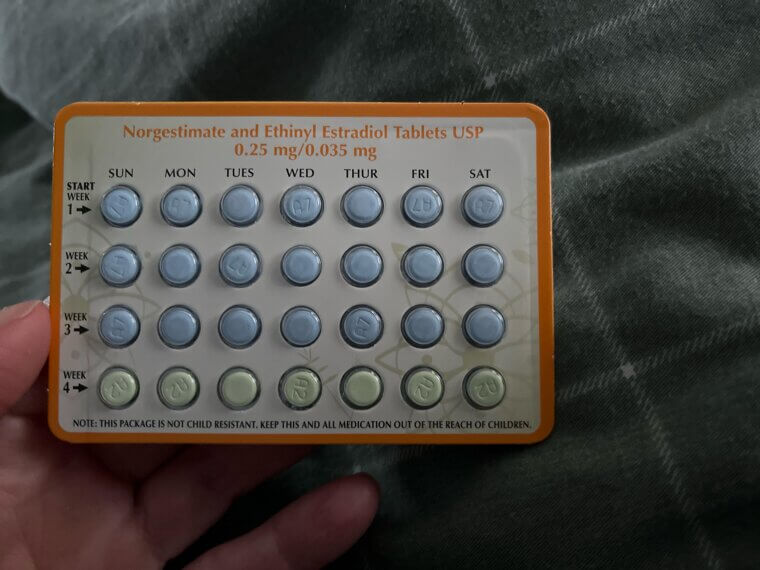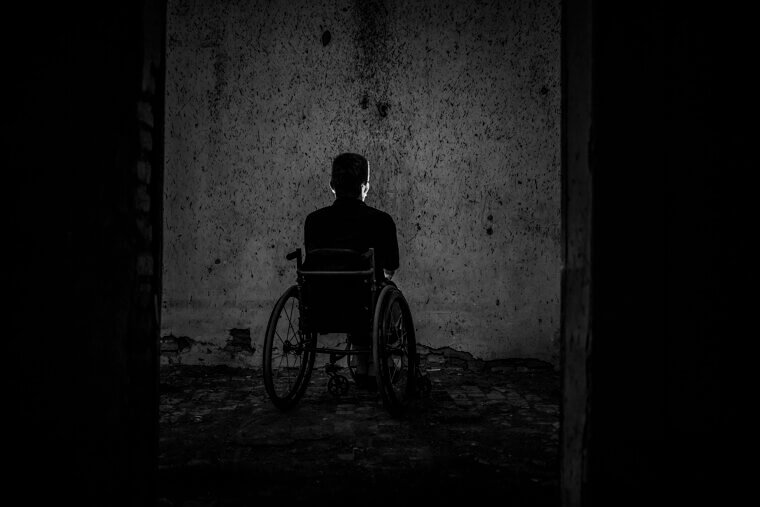Here's What We Should Keep an Eye on When Looking for Vitamin B12 Deficiency
Vitamin B12 is a vitamin your body can’t make on its own. This super nutrient keeps your nerves sharp, your energy flowing, and your blood healthy. Mostly found in animal products, it does many things in your body, so falling short can bring some surprises. But what should you look out for?
Early Symptoms
Some initial signs of B12 deficiency include tiredness and weakness. This vitamin assists your body with red blood cell production, and these cells carry oxygen. If you don't have enough B12 in your diet, you will feel drained, slow, and may feel like taking a nap at 10 am.
Brain Fog That Won’t Quit
Are you finding it difficult to focus, or do you find yourself forgetting simple things? A B12 deficiency can negatively affect nerve health and overall brain function. It’s not just stress; your body might be waving a red flag.
Vegetarians and Vegans Are at Risk
Plant-based diets are mostly good and for many reasons, but here's the thing: Vitamin B12 is mostly found in animal products. If you don't eat meat, fish, and dairy, you will need to eat fortified foods or take supplements. Without them, your energy and mood may fall flat.
Birth Control Pills Can Make You Deficient
Surprise! Your birth control pack might be affecting your B12 levels. Some studies suggest that hormonal contraceptives decrease the amount of vitamin in your blood. While that's not going to happen to everyone, it's worth knowing if you've been feeling drained and just can't figure out why.
Tingling Hands and Feet
Do you ever feel pins and needles in your hands or feet? This is yet another way your body tells you you’re low on B12. As B12 is essential for your nerves, low levels of the vitamin can cause numbness or tingling.
Drinking Too Much Boosts Your Risk
Alcohol and B12 don’t mix well. Heavy drinking can damage your stomach lining, making it harder to absorb nutrients like B12. Over time, that glass of wine (or three) might leave you tired, foggy, and deficient. Cheers to moderation if you want your levels steady.
Aging Makes Deficiency More Likely
Once you hit 50, your stomach produces less acid; bad news for absorbing B12 from food. Even with a balanced diet, your body may not be able to pull enough from that steak or salmon. Supplements or fortified foods often become necessary to keep your energy up.
A Blood Test to Find Out
Symptoms of low B12 can mimic a dozen other issues, from stress to thyroid problems. That’s why guessing won’t cut it. A blood test is the only way to know for sure. Think of it as detective work for your health.
Too Much B12?
Worried about overdoing it? Don't sweat it, B12 is water-soluble, so your body will just flush out what it doesn't use. Some vitamins can accumulate in your body and reach toxic levels, but B12 is pretty low risk. It's been said that the only aspect to worry about with B12 is insufficient intake.
Deficiency Can Disguise Itself as Other Illnesses
The tricky thing about B12 deficiency is that it doesn't always announce itself too loudly. Fatigue, mood changes, pale skin, or heart palpitations could be any number of things. This is often why it goes undiagnosed for years.
Animal-Based Foods Are the Best Sources
If you eat meat, fish, or dairy, you are already consuming food with the most amount of B12. Beef, salmon, tuna, and eggs are all very high in B12. It's very hard to meet your B12 needs without eating animal products. But supplements or fortified foods can help.
Low Levels Raise Pregnancy Risks
When it comes to pregnancy and B12, it isn’t just about energy; it’s about development. Lack of B12 has been associated with birth defects like neural tube issues. This is why it is recommended to maintain healthy levels in pregnancy.
Digestive Issues Can Block Absorption
Even if your diet is solid, digestive problems can mess with how your body absorbs B12. Conditions like Crohn’s, celiac, or even chronic gastritis can interfere with nutrient uptake.
Fortified Foods and Supplements Can Help
If you don’t eat animal products or have difficulty absorbing B12, food options like fortified cereal, plant-based milk, or taking daily supplements can be lifesavers. They are convenient, effective, and safe. Sometimes, it just involves changing what you normally have for breakfast to keep your energy in check and nerves under control.
Heartburn Medications Can Make You Deficient
Proton pump inhibitors and antacids may relieve acid reflux, but they work by reducing stomach acid, which is necessary for absorbing B12. Long-term use of these meds can quietly set you up for deficiency.
Some Signs Show on the Outside
B12 deficiency isn’t always hidden; sometimes your body shows it. You may develop pale skin, a swollen tongue, or sores in your mouth. You may even develop brittle nails. While signs might not always be glaringly obvious, they are little clues that your body is starting to run low on this vitamin.
It Can Mess With Pap Smear Results
Low B12 can actually mimic abnormal cervical cells on a Pap, so you get a “false positive”. Doctors may see changes that look serious when it is only an issue with your diet. This is just another reason why deficiency can go undiagnosed.
Sometimes, It’s Not Easy to Recognize
One of the challenging parts of a B12 deficiency is that it can manifest as things that are easy to recognize. Fatigue, mood swings, and brain fog can often be blamed on being stressed or not getting enough sleep. Without testing, it’s very difficult to identify.
It’s Not Always Obvious
Vitamin B12 shortage doesn’t come with a neon sign. Its symptoms are vague and can be blamed on daily stress. More advanced signs like tingling and depression usually show up after the initial symptoms. But the signs vary from person to person.
It Can Present Like Dementia
Low B12 can mimic memory loss and confusion. People may confuse this for dementia or decline due to age. Fortunately, this is reversible (unlike dementia) with treatment. This is why catching the deficiency early can make all the difference for brain health and clarity.
It Can Cause Tingling and Balance Issues
Pins and needles in your hands or feet? Maybe a little unsteady on your feet? Those nerve-related symptoms could be B12 deficiency. This vitamin is essential for nerve function, so when levels drop, your body sends out warning signs in the form of tingling, weakness, or balance issues.
Connection to Weak Immunity
Vitamin B12 plays a key role in the effective functioning of your immune system. When you don't have enough of it, your body has trouble making enough white blood cells, which increases your risk of infection and reduces your ability to recover from it.
Weight Loss Surgery Increases the Risk of A Deficiency
People who’ve had weight loss surgery sometimes have issues absorbing vitamin B12 properly. The changes in the digestive system make it harder to break down and process nutrients. Without supplements, a B12 deficiency can sneak in
Low Iron Levels Can Join In
Vitamin B12 deficiency can partner with low levels of iron to produce anemia, giving you that pale, drained look. This is one of the reasons doctors test for iron, along with B12, when they suspect that something might be affecting your energy levels.
It’s Connected to Pernicious Anemia
One of the leading causes of B12 deficiency is pernicious anemia. This is an autoimmune disease that interferes with your stomach’s ability to absorb Vitamin B12 properly. When left untreated, it can cause long-lasting damage.
It Heightens the Risk of Osteoporosis
Besides assisting the body in making healthy red blood cells, B12 is an essential nutrient for bone health. Research has shown that low B12 can weaken bones and lead to an increased risk of osteoporosis.
Babies Can Be Deficient
Infants can be deficient if their mothers have low levels of B12 during pregnancy or while breastfeeding. Possible symptoms include poor growth, irritability, and developmental delays.
It’s A Silent Threat to Nerves
B12 deficiency damages the protective coating around nerves known as myelin. Without the myelin insulation, messages from your brain do not travel smoothly, and you may experience weakness, numbness, or cognitive problems.
Chronic Risks
In addition to feelings of fatigue and mental fuzziness, severe chronic B12 deficiency may lead to serious long-term complications, such as cardiovascular disease, decline in neurological functions, and even mobility issues.
Potential Damage
The most alarming thing about untreated B12 deficiency is that it can cause irreversible damage to your nerves. This is why early identification is so important, as it is far easier to deal with it before it causes permanent damage.































